The Unknown Threat That’s Accelerating Your Aging Right Now
Scientists Just Found a Hidden Trigger for Premature Aging
A fascinating recent study followed 15,752 participants over 25 years to investigate the impact of hydration on aging.
The results were surprising:
Those who did not hydrate properly showed:
Accelerated aging
A higher risk of developing chronic diseases such as heart failure, dementia, chronic lung disease, strokes, diabetes, peripheral vascular disease, and atrial fibrillation
Premature death
Break free from misinformation with science-backed insights, practical health tips, the latest research, and expert myth-busting—all from a certified Medical Doctor. Join 3,000+ like-minded people now!
How Much Water Should I Drink?
Although it seems like a simple question, the answer is more complex than it appears. You’ve probably heard the famous advice to drink eight glasses of water daily, a goal that’s easy to remember and, in many cases, a good reference.
However, this recommendation is more of a general guideline than a strict rule.
The ideal amount of water is a highly individual matter, varying from person to person and even within the same person under different circumstances.
While there are general recommendations, like the eight-glass rule, or others slightly more specific that I’ll share below, it’s crucial to understand how your body uses and loses fluids daily to adjust these guidelines and determine your unique intake.
We lose water every day through breathing, sweating, urination, and bowel movements. For most healthy individuals, thirst is a reliable indicator of when to hydrate.
However, in some instances, such as with older adults or during intense exercise, thirst may not be enough; in these instances, it’s advisable to drink water consistently throughout the day.
Adults (19–64 Years)
The U.S. Institute of Medicine of the National Academies recommends a daily fluid intake of 3.7 liters (15.5 cups) for men and 2.7 liters (11.5 cups) for women.
These amounts account for total fluid consumption, including beverages and the water content in food.
Approximately 20% of fluids come from water-rich foods, such as fruits and vegetables, while the remaining 80% comes from beverages
Older Adults (65+ Years)
Recommendations for older adults remain at 3.7 liters (15.5 cups) daily for men and 2.7 liters (11.5 cups) for women. However, with aging, the sense of thirst tends to decrease, increasing the risk of dehydration.
In fact, up to 40% of older adults may be chronically dehydrated, and even a dehydration level as low as 1% can affect endurance, power, and muscle strength, thereby worsening the effects of age-related muscle loss.
It is, therefore, essential to pay special attention to fluid intake to ensure adequate hydration during this stage of life.
Pregnant Women
From ages 14 to 50, a daily intake of 3 liters (12.5 cups) is recommended.
Breastfeeding Women
From ages 14 to 50, a daily intake of 3.8 liters (16 cups) is recommended.
What Factors Influence How Much Water You Need?
(1) Physical Exercise
During exercise, the body loses fluids and electrolytes through sweat to regulate its temperature. Replenishing this loss is essential to maintain performance and avoid dehydration.
Hydrate before, during, and after training. The amount of water needed depends on the intensity and duration of the activity and your level of sweating. Still, a good practice is to drink small amounts of water consistently.
(2) Environment
In regions characterized by high temperatures and humidity, the body experiences increased water loss through sweat as a means of thermoregulation and maintaining a comfortable internal environment, making it essential to increase water intake.
At high altitudes, dry air and an increased respiratory rate also accelerate fluid loss, raising the risk of dehydration. In both situations, drinking more water is vital to maintaining proper hydration.
(3) Overall Health
When the body fights an illness such as fever, vomiting, or diarrhea, it loses fluids quickly. Increasing water intake or consuming rehydration solutions is crucial to replenish fluids and electrolytes.
Additionally, conditions like urinary tract infections or kidney stones require higher hydration levels to support the urinary system, helping flush out bacteria or preventing the accumulation of minerals that form stones.
(4) Pregnancy and Breastfeeding
A woman’s body requires more fluids during pregnancy and breastfeeding to support its functions and the baby’s development.
During pregnancy, water is essential for forming amniotic fluid, maintaining circulation, and ensuring proper digestion.
During breastfeeding, adequate hydration is critical to maintaining an optimal production of breast milk, and it is recommended to increase daily fluid intake further to meet these additional demands.
How Can I Tell if I’m Drinking Enough Water?
A sign that you’re well hydrated is not feeling thirsty frequently.
Additionally, the color of your urine is a simple and effective indicator of your hydration level:
Light yellow or clear: Adequate hydration.
Dark yellow or amber: Possible dehydration; it’s time to drink more water.
Very clear: Possible overhydration.
This method is practical and visual, although some foods (like beets or asparagus) and certain medications or supplements (such as B-complex vitamins) can temporarily alter urine color without being related to hydration.
Listen to your body and pay attention to other signals, such as thirst, fatigue, or a dry mouth, to maintain a good fluid balance.
🎁 Get FREE months of premium access when your friends subscribe—just by sharing this newsletter!
Reader Favorites You Can’t Miss
Discover some of the most beloved articles to enhance your well-being:
To your health,
Sara Redondo, MD
P.S. You can read the studies by clicking on the links.
Copyright © 2024. All rights reserved.
Disclaimer:
These recommendations are general and may not suit everyone’s individual needs. The amount of water you should consume depends on factors like your activity level, climate, age, sex, health status, and special conditions such as pregnancy or breastfeeding.
Remember that your fluid intake includes drinking water and other beverages and foods with high water content. For personalized and safe advice, it's always best to consult your doctor.
The information in this newsletter is for educational and informational purposes only. It is not intended as medical advice, nor should it be used as a substitute for professional healthcare guidance, diagnosis, or treatment.
Always seek the advice of your doctor or a qualified healthcare provider before making any changes to your health routine, starting new treatments, or addressing specific medical concerns.
This content does not create a doctor-patient relationship. While I make every effort to ensure accuracy, the information provided may not apply to your unique situation.

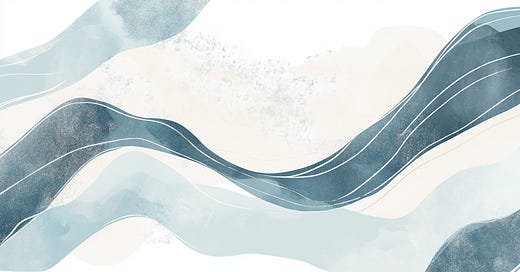



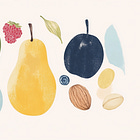
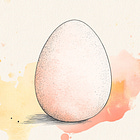
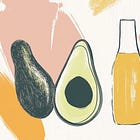
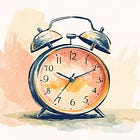
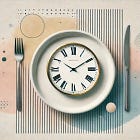
I get low sodium from lots of water, so I need to add 1/4t of salt to each quart of water. I keep a bottle of salted water by my bedside and drink during the night and I don't have any more constipation problems in the morning.